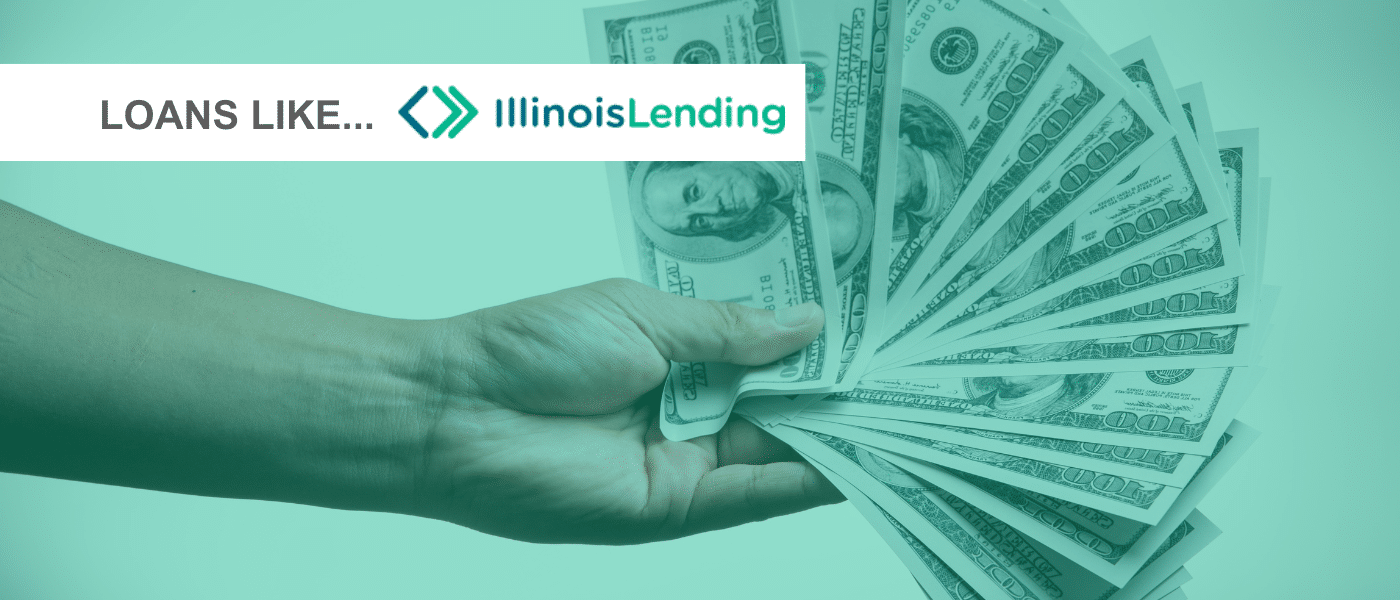Car loan rates can change depending on a few different factors, like the state of the economy and the index rate. If you are looking into car loans, it will be imperative to know what the current trends are. That way, you can decide whether you want to finance your car purchase in the first place and if so, what your best deals are.
Below you’ll find some general information on car loans, current rates, and more about finding the best auto loan for you.
The Basics on Car Loans
A car loan also called an auto loan is used to finance the purchase of a vehicle. You can find car loans with banks such as Chase or Bank of America, credit unions such as Consumers Credit Union or PenFed Credit Union, online lenders, and sometimes at dealerships, although most will offer in-store financing rather than a car loan. A car buying service such as Enterprise Car Sales is another place where you may be able to finance a car, and will likely work similarly to a dealership.
How Does a Standard Car Loan Work?
Traditionally, with a car loan, you will get a lump sum amount of funds which you can use right away for your car purchase. When working with a dealership for in-store financing, you may have to choose your vehicle first. Once you make your car purchase, you can drive off with your new car and will have to start making payments to your lender. Although you have the car with you, it is important to keep in mind that technically the lender owns your vehicle until you repay the loan in full.
When applying for an auto loan, you may have to have a down payment. A down payment is a percentage of the vehicle price that you must pay out of pocket in order to take out the loan. Mortgages are another loan type that have this type of payment. Experts recommend that you put down at least 10%-20% of the purchase price. The more you put down, the less you’ll have to finance and the less interest you will pay.
Ideally, you would want to save up for that down payment, but if you don’t have the funds upfront, a loan option can work. In fact, many people use loans like personal loans or credit cards for their down payments. Talk to your lender about specifics!
What Do You Need for Auto Loans?
You’ll need a few different things to get through the auto financing application process, here is what most auto lenders will typically ask for:
- A Government Issued Photo ID — A driver’s license, passport, military Id, permanent resident card, State ID, etc.
- Proof of Income — Banks statements, invoices, pay stubs, letter of income, etc.
- Proof of Residency — Pieces of valid mail, bank statements, utility bills, utility or mortgage statements.
- Social Security or TIN Information.
- Vehicle Information — When purchasing from a private buyer, most lenders will ask about a complete bill of sale, purchase agreement or buyer’s order. These documents will have important information such as vehicle make and model, the purchase price, and the VIN number.
- Proof of Insurance — Many states require that drivers have car insurance, and your lender may ask for proof of that.
- A Down Payment — In some cases, you may need to have a down payment, which will be a percentage of the vehicle purchase price.
Typical Repayment With Auto Loans
Generally, car loans are loans with fixed interest rates. And so, they will usually need to be repaid in steady monthly installments. The great thing about these kinds of loans is that they offer a predictable repayment schedule, and so, can easily be budgeted for. Car loans generally last three to five years, making them a long-term commitment. And so, it is essential to really think about your long-term financial goals and health before you decide on taking out one of these loans.
Different Types of Car Loans
There are a few different types of car loans that you should know about before choosing one. Here is more information on the various car loan options you may come across:
A New Car Loan
If the vehicle you are purchasing is brand new, then you can use a new car loan. You can find a new car loan with multiple lenders, so look around at a few options before choosing one to work with.
A Used Auto Loan
You will need to use a used auto loan when you are buying a vehicle that is pre-owned. Similarly to a new car loan, you’ll likely find a good amount of lenders that offer these loans, and so ensure that you look around.
Lease Buyout Loans
If you are leasing your vehicle, at the end of the lease, you can have the option to buy the vehicle instead of returning it. Keep in mind that the monthly payments you made towards your lease will not count towards the buyout, this is because leases are only meant to cover the depreciating value of the vehicle while you drive it.
Car Refinance Loan
If you already have a car loan on your vehicle but want to switch financing terms and lenders then you would inquire about a car refinance loan. This can be especially helpful if your finances change during your original car loan repayment and you want to stay in good financial standing with your current lender.
Bad Credit Car Loans
Having a low credit score or poor credit history can make it challenging to secure funding from some lenders. And that is where bad credit car loan lenders come in. These lenders offer car loan options for bad credit borrowers. Keep in mind that loan amounts may be more limited and auto loan rates may be higher than with lenders who offer funding to fair to good credit borrowers.
Private Party Car Loans
If you are purchasing a car from a private seller/individual rather than a business, a private party car loan is the type of auto loan that you will need to finance the purchase.
Average Auto Loan Rates Currently
Here are the current average rates for auto loans based on credit score ranges:
579 or below — 12.84% for a new auto loan and 20.43% for a used auto loan.
580 – 619 — 9.75% for a new auto loan and 16.85% for a used auto loan.
620 – 659 — 6.57% for a new auto loan and 10.33% for a used auto loan.
660 – 719 — 4.03% for a new auto loan 5.53% for a used auto loan.
720 or above — 2.96% for a new auto loan 3.68% for a used auto loan.
What Impacts Car Loan Rates?
Your credit scores are a huge factor that impacts your auto loan rates. Credit scores give lenders the ability to determine the risk they are taking if they lend money to you. The lower a credit score, the more risk for the lender, while good or fair credit borrowers indicate less risk and can get the best auto loan rates.
Improving Your Credit Score
If you have some time before you begin applying for auto loans, the good news is there are a few things you can do to increase your chances of loan approval, and better car loan interest rates. Here are some simple ways you can improve your credit scores:
Make Monthly Payments on Time To Improve Your Credit Score
The largest factor that impacts your credit score is the payment history on your credit accounts! It will be critical to make your monthly payments on time if you want to establish a positive payment, and ultimately positive credit history. Even a single late payment could hurt your credit scores and remain on a credit report for up to seven years, so it is essential to make every payment on time! One way to make remembering due dates easier is to set up automatic payments from your bank account.
Get Alternative Payments Reported
There are many payments that many of us make each month, however, not all of them are reported to the credit bureaus. Some examples include a phone, utility, or rent bill. Fortunately, there are services available that can get those payments reported for you. If you make those payments on time, then you may see an increase in your credit score!
Keep Your Paid off Accounts Open
While some credit accounts like personal loans are closed automatically once they are paid off, revolving accounts like credit cards have the ability to stay open. And if you close your credit card accounts, it may hurt your credit score because it takes away your available credit—which impacts your credit utilization.
Credit utilization measures the amount of existing debt you have against how much available credit you have, and is an important part of calculating your credit score. So ensure you keep your paid off credit accounts open!
Limit New Credit Inquiries
When you apply for loan approval many lenders will have a hard credit check at the end of the verification process. New credit inquiries can bring down your credit score by a few points around three to five. Applying for multiple loans may mean several hard credit checks, which can hurt our credit score.
Diversify Your Credit Mix
Your credit mix looks at the diversity of your credit accounts. With diversity, lenders can see that you have experience handling several kinds of credit accounts. And so, it will be helpful to really think about the credit accounts you currently have and what adding another will do for your credit mix.
Pay Off Debt
Another thing you can do that may help your credit score is to pay off existing debt. Your debt impacts both your debt to income ratio and credit utilization, which are important factors that make up your credit score. If you are struggling with high interest debt, consider the option to refinance loans if you can get an interest rate discount and a more manageable loan term. There are also several debt repayment strategies available such as the snowball or avalanche method.
And so, as you can see there are several ways you can tackle improving your credit score. Doing so may help you get a higher loan amount and a better auto loan rate that you previously could not qualify for.
Pros and Cons of Auto Loans
Just like any loan out there, auto loans have their own sets of pros and cons. You should know about them before seeking auto financing through this avenue. Here are some advantages and disadvantages you may find:
With Auto Loans You Don’t Have to Worry About Paying the Entire Balance of the Car
Cars can be expensive, a new vehicle or even a used one can cost thousands of dollars. And for the average American, paying for a vehicle outright may not be an option. Auto loans can help finance the large purchase, making it possible to have and use a vehicle.
An Auto Loan May Help You Build Credit
As long as it doesn’t skew your debt-to-income ratio and you are able to make your monthly payments on time, adding an auto loan to your credit history may help you build credit!
Auto Loans May Be Smarter Than a Lease, as You Can Build Equity
With a lease you won’t be working towards owning your vehicle at all, while with an auto loan you will be able to build equity as you make your monthly payments.
Adding a Car Loan Means Another Monthly Payment
Adding an auto loan to your plate will mean another bill you will have to pay every month. If your budget is already tight, then you may want to have a good amount to put down for a smaller loan.
Depreciation of Your Car’s Value
Unfortunately, cars are an asset that lose value extremely quickly, most of us know that when you drive a new vehicle off the lot it loses value immediately. And so, with an auto loan, chances are that by the time you are done with your loan, the value of your car will be significantly less than what you ended up paying for it! This is not something that you can really avoid, unless you pay your loan off very early, but it is something you should know about,
You May Quickly Find a Lender for Credit Approval, Even With Bad Credit
Excellent credit may not be required depending on the lender you work with. Many car loan lenders don’t have a minimum credit score requirement to apply!
Things To Consider Before Getting a Car Loan
If you are thinking about taking out a car loan, there are definitely a few things you should consider. Here are some things to keep in mind:
Whether You Can Afford the Estimated Monthly Payment for Your Auto Loan
Affordability should be a huge thing you think about before taking out an auto loan. One way to figure out whether a new loan will fit into your budget is calculating the monthly payment for your car loan. You may be able to ask your lender for specifics once you apply for pre-approval, but you can use an auto loan calculator to do it on your own. Once you know exactly how much you’ll have to pay, you can decide whether the loan is practical.
Are the Auto Loan Repayment Terms a Good Fit?
Loan terms encompass a few different loan factors including your interest rate, repayment terms, and loan length. Although you may not think of all these variables, it will be extremely important to pay attention to all of these terms collectively so you can make an informed lending decision.
With interest rates, finding competitive rates is key, and of course those with excellent credit will get the best rates. You’ll want a repayment plan that fits your needs; a longer loan may mean a lower monthly payment but more interest, while a shorter loan may mean a higher monthly payment but less interest overtime. And finally loan repayment details like early payment penalties, and loan agreement specifics are important to review so you don’t break your loan contract or end up paying unnecessary fees.
Is an Auto Loan Even the Right Option for Your Car Purchase?
If you don’t need to purchase a vehicle right away, then you may want to consider saving money overtime so you can pay for the purchase outright. Because although auto loans may be convenient, avoiding debt is usually a better option for your financial health.
Knowing the Difference Between Interest Rate and APR
The interest rate for a car loan is different from the APR (the annual percentage rate). The APR is the total cost of the loan while the interest rate only reflects the rate that your lender will charge for borrowing the funds. The mistake that many people make is to consider the average interest rate as the only cost that comes with a loan, when in fact there can be other costs to factor in. And so, remember, the loan’s interest rate isn’t the only cost an auto loan may require.
Deciding Between New and Used Cars
Before you seek out a loan, it will be helpful to figure out whether you want to purchase a new or used car. New cars are usually much more expensive than used cars. Sometimes that new car price tag may not be the smartest choice, as there may be a gently used car that is the same make and model but for much less. As mentioned before, cars lose their value quickly, so the more affordably priced car you can find the better, even if it means a used vehicle.
The Type of Car Loan You Are Inquiring For
As discussed, there are several different types of auto loans that you can apply for. Some lenders and dealerships may be limited in their options, and by figuring out what car loan you need to apply for you can save time on your search. For example if you already have a car loan, then you will likely be looking for refinancing loans.
What Makes the Best Auto Loan Lenders?
Finding the right lender may seem daunting, but knowing what to look for can make the search process easier. Here are some qualities the best car lenders have in common:
They Have the Best Car Loan Rates Based on Credit Scores
Starting auto loan rates for you will depend on your credit score, the best auto lenders have competitive rates for borrowers with all credit score ranges, not just excellent credit!
The Best Auto Loan Lenders Are Flexible
Flexibility should be on the top of your list when finding any loan, but especially important for long-term options like car loans. Flexible lenders are accommodating if you want to pay your loan early or if your finances change throughout the years of repayment.
Affordable Monthly Payments
The best lenders have manageable and personalized payment plans for each individual borrower. Everyone’s finances may be different and it will be helpful to have a lender that understands and accommodates that.
An Easy Application Process
Your application process shouldn’t be super complicated. The best lenders will have an easy and streamlined process that makes sense. The last thing you may want to do is be confused about how to finish your application or what you are signing up for exactly.
The Best Lenders Are Transparent
You should be able to get clarification and ask any questions you may have about a car loan without any push back from your lender. A great lender will let you know about any potential fees before you sign a loan contract.
Key Takeaways With Current Car Loan Rates
Car loan rate averages can change, just like with other loans! Knowing what the current car rate averages are will help you figure out whether you are getting a good deal! Keep in mind that these averages are broken down by credit score ranges, so the better your credit score, the better your car loan rates!
References:
What Auto Loan Rate Can You Qualify for Based on Your Credit Score? | Experian







